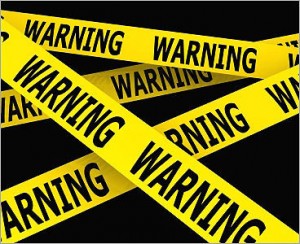 Nathan Busenitz serves on the pastoral staff of Grace Church and teaches theology at The Master’s Seminary in Los Angeles. In an article entitled, “In what way was Jesus ‘made sin’ on the cross?” he writes:
Nathan Busenitz serves on the pastoral staff of Grace Church and teaches theology at The Master’s Seminary in Los Angeles. In an article entitled, “In what way was Jesus ‘made sin’ on the cross?” he writes:
Yesterday, as I was reading through portions of Martin Luther’s commentary on Galatians, I came across the following:
“Christ took upon Himself our sins, not by constraint, but of His own good will, in order to bear the punishment and wrath of God: not for the sake of His own person (which was just and invincible, and was not in any way guilty), but for our person. So by means of a joyous substitution, He took upon Himself our sinful person, and gave to us His innocent and victorious person: with which we, being now clothed, are free from the curse of the law. . . . By faith alone therefore we are made righteous, for faith alone lays hold of this victory of Christ.” (Commentary on Gal. 3:13)
Calvin’s comments on 2 Corinthians 5:21 are similar:
“How can we become righteous before God? In the same way as Christ became a sinner. For He took, as it were, our person, that He might be the offender in our name and thus might be reckoned a sinner, not because of His own offences but because of those of others, since He Himself was pure and free from every fault and bore the penalty that was our due and not His own. Now in the same way we are righteous in Him, not because we have satisfied God’s judgment by our own works, but because we are judged in relation to Christ’s righteousness which we have put on by faith, that it may become our own.” (Commentary on 2 Cor. 5:21)
Those quotations, which underscore the doctrines of substitutionary atonement and Christ’s imputed righteousness, reminded me of an earlier study I had done regarding 2 Corinthians 5:21, specifically with regard to this question: In what way was Jesus “made sin” on the cross?
I thought it’d be worth rehearsing some of that material in today’s post. To state the question another way: Did Jesus become the literal embodiment of sin, or take on a sin nature, or become a sinner when He died at Calvary?
The heart of the question centers on Paul’s statement in 2 Corinthians 5:21: “He made Him who knew no sin to be sin on our behalf, so that we might become the righteousness of God in Him.”
In what sense did Jesus become “sin on our behalf”? Does that phrase mean that Jesus literally became a sinner on the cross?
There are some today who teach that Jesus became a sinner (or took on a sin nature) at the cross. Benny Hinn is one such advocate. In a TBN broadcast, Hinn exclaimed:
“He [Jesus] who is righteous by choice said, ‘The only way I can stop sin is by me becoming it. I can’t just stop it by letting it touch me; I and it must become one.’ Hear this! He who is the nature of God became the nature of Satan when he became sin!” (Benny Hinn, Trinity Broadcasting Network, December 1, 1990)
Prosperity-preacher Kenneth Copeland echoes those same teachings. In Copeland’s words:
“The righteousness of God was made to be sin. He accepted the sin nature of Satan in His own spirit. And at the moment that He did so, He cried, ‘My God, My God, why hast thou forsaken me?’ You don’t know what happened at the cross. Why do you think Moses, upon instruction of God, raised the serpent upon that pole instead of a lamb? That used to bug me. I said, ‘Why in the world would you want to put a snake up there; the sign of Satan? Why didn’t you put a lamb on that pole?’ And the Lord said, ‘Because it was a sign of Satan that was hanging on the cross.’ He said, ‘I accepted, in my own spirit, spiritual death; and the light was turned off.’” (Kenneth Copeland, “What Happened from the Cross to the Throne,” 1990, audiotape #02-0017, side 2)
On another occasion, Copeland reiterates that same teaching:
“How did Jesus then on the cross say, ‘My God’? Because God was not His Father any more. He took upon Himself the nature of Satan.” (Kenneth Copeland, “Believer’s Voice of Victory,” Trinity Broadcasting Network, April 21, 1991)
But do assertions like these accurately reflect Paul’s teaching that “He made Him who knew no sin to be sin on our behalf”?
To come back to the original question: “Did Jesus become the literal embodiment of sin, or take on a sin nature, or become a sinner when He died at Calvary?” My answer to that question is a resounding no.
Here are five reasons why:
1. In 2 Corinthians 5:21, Paul declares that Jesus “knew no sin.” Whatever the rest of the verse means, it must be interpreted in light of Paul’s statement that Jesus “knew no sin”—meaning He had no personal experiential knowledge of sin in any way. If Jesus became a sinner or took on a sin nature then Paul would have contradicted himself in that very verse. Continue reading


 Exposing heretics and those who are working in opposition is sometimes seen as an unbiblical activity. To some, it even seems to be a very unloving thing to do, especially when names are mentioned. Yet a vital function of a true shepherd is to protect the sheep from wolves, rather than allowing them open and unrestricted access to the sheep pen.
Exposing heretics and those who are working in opposition is sometimes seen as an unbiblical activity. To some, it even seems to be a very unloving thing to do, especially when names are mentioned. Yet a vital function of a true shepherd is to protect the sheep from wolves, rather than allowing them open and unrestricted access to the sheep pen. Texts lifted out of their setting can be made to support many erroneous views and heresies. Surely, a text out of context is a pretext for all false doctrine. However, error is exposed when individual texts are subjected to analysis such as identifying the background, use of words, context, syntax, etc.
Texts lifted out of their setting can be made to support many erroneous views and heresies. Surely, a text out of context is a pretext for all false doctrine. However, error is exposed when individual texts are subjected to analysis such as identifying the background, use of words, context, syntax, etc. John chapter ten is one of the most beautiful in all of Scripture, for it speaks of the Lord Jesus’ relationship to His people in the terms of the Shepherd and His sheep. In the midst of talking about the glorious salvation that belongs to those who know and trust Christ, Jesus asserts that He and the Father are one in their bringing about the final and full salvation of all those who are given by the Father to the Son (vv. 28-30). When the Lord says, “I and the Father are one,”[1] He offends the Jews, who realize that such a claim implies deity. No mere creature can be fully one with the Father in bringing about redemption itself! This prompts the dialogue that concerns us here:
John chapter ten is one of the most beautiful in all of Scripture, for it speaks of the Lord Jesus’ relationship to His people in the terms of the Shepherd and His sheep. In the midst of talking about the glorious salvation that belongs to those who know and trust Christ, Jesus asserts that He and the Father are one in their bringing about the final and full salvation of all those who are given by the Father to the Son (vv. 28-30). When the Lord says, “I and the Father are one,”[1] He offends the Jews, who realize that such a claim implies deity. No mere creature can be fully one with the Father in bringing about redemption itself! This prompts the dialogue that concerns us here: